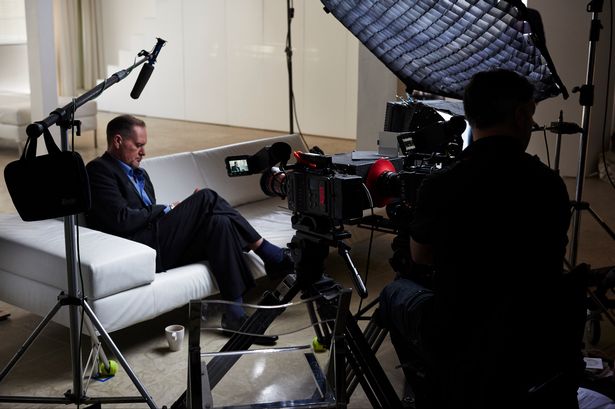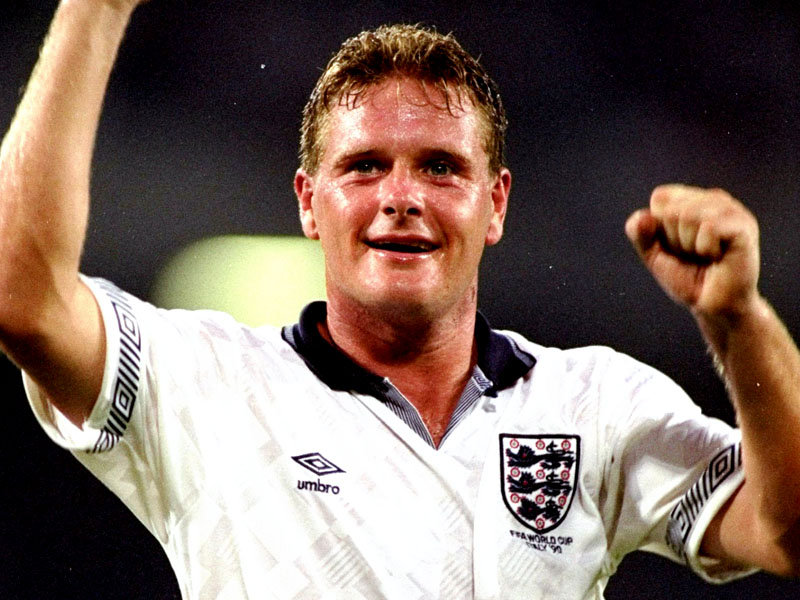Director: Jane Preston
Genre: Documentary
Starring: Paul Gascoigne
Rating: 15
Running time: 90 mins
‘Enigmatic’ is a tired descriptor. In an online world where pithy click-bait saturates social media, genuine anomalies are buried in a mountain of sameness. Sporting culture replicates this tendency to mythologise the banal. Football, especially, milks these narratives for signs of profundity, weaving highlight programmes and gossip columns together with synthetic dramatics. In reality, few players are like Paul Gascoigne: a genuinely enigmatic person – and a bona fide cultural icon of late 20th century England, who lingers vividly in the memory.
A paradoxical figure, and soft target for the tabloids, ‘Gazza’ was (still is) prone to a multitude of addictions. Without a doubt, though, a mercurial hero on the pitch. He precariously trod the tight rope of genius and fool – often playing hungover or overweight, yet still threatening with a penetrating run, cheeky pass, or highlight-friendly goal. Gazza is a larger-than-life cartoon character, never straying from his working-class, every-man roots. Gateshead’s, his home town, is a grimy Saturday Night, Sunday Morning factory working kind of place, one that reflects his honesty and humble persona.
Untypical of football’s macho culture, Gazza regularly opens up about his trials and tribulations. Exuding a naïve, child-like vulnerability, he appears at odds in a man’s world, but people still get him. He’s like a slightly unhinged yet amenable brother or uncle, we’ve all had one of those. Jane Preston’s documentary, GASCOIGNE, hammers this point home, documenting affably ‘sketchy’ melodrama and the antics populating his career. Gazza was a proto-lad before ‘lad’ culture was stigmatised, which meant the politically incorrect public warmed to him – empathising and admiring in equal doses.
Most of the material in GASCOIGNE is already burnt into the collective psyche of 80s, 90s England. From his run in with Vinny Jones, to the topsy-turvy spell in Italy, and, most saliently, his vintage year, Euro 96’ (doctor chair hilarity followed by that goal against Scotland), it’s all here. The documentary’s artistic techniques leave a lot to be desired, often overtly familiar and overwrought. Minimalist long shots of dressing rooms, archival footage of energised crowds, all adhere to the turgid, slightly pretentious tradition of football reportage. Preston’s insistence on using slow motion closes ups on interviewee reactions are as cringe worthy as they are hackneyed.
While the likes of Gary Lineker and Wayne Rooney are essential interviewees in a documentary on Gazza (after all, Lineker was his sensible polar opposite and key teammate, whereas Rooney is the closest to an indirect protégé England has had since), Preston’s inclusion of Jose Mourinho is baffling. His segments act as a platform for a sizable ego, climaxing in an insinuation that if Gazza had been better ‘man managed’, he’d have reached full potential. Of course implicit in his suggestion is that the ‘Special One’ would be the man to do it.
Sadly, the depths of Gazza’s life are hardly touched upon. His surreal attempt to comfort mass murderer Raul Moats with chicken, fish rods and beer, was perhaps a telling moment (entirely imagined on his part), worth reflecting upon in its apocalyptic gravity. Moatsgate was a markedly dour instance of Gazza’s life post-football, where, restless and devoid of direction, his life momentarily descended into an abyss of unintentional black comedy. His heart – as always – was in the right place, but his mind less so. Concerns for a lost soul might be better put to use when he catches a glance in the mirror, reminding me of a fitting song lyric from the metalcore band Hatebreed, “How can you save me, if you can’t save yourself?”
Verdict






























